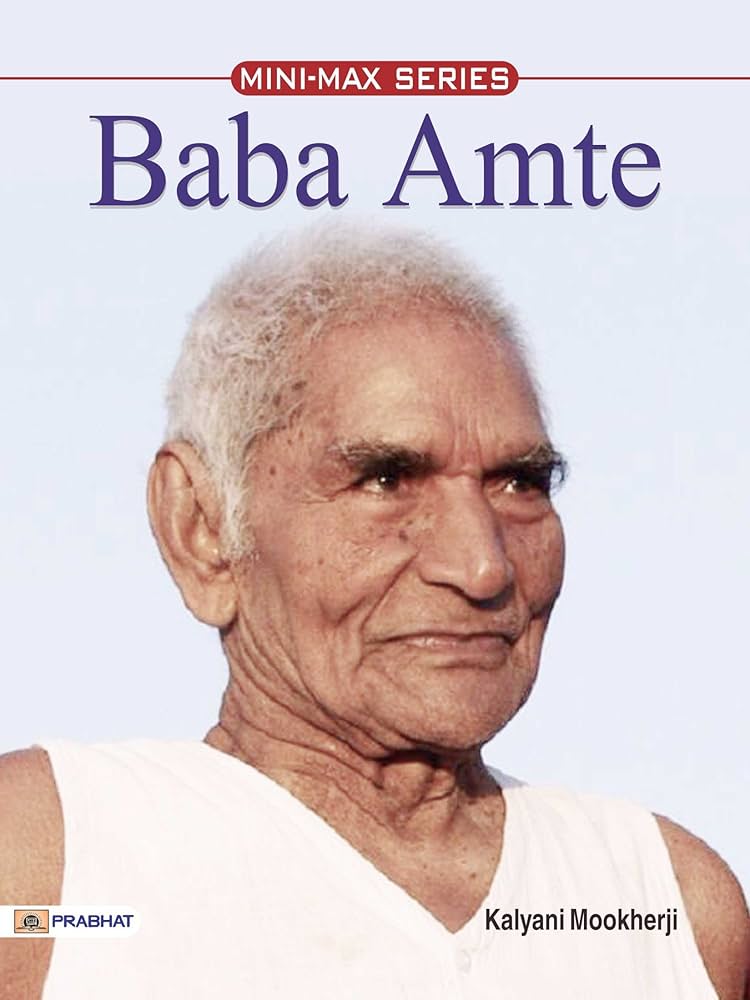Baba Amte Family Tree
Baba Amte - A Lifestory

Murlidhar Devidas Amte, popularly known as Baba Amte, was a renowned Indian social worker and activist best known for his work in the rehabilitation and empowerment of people suffering from leprosy. Born on December 26, 1914, into a wealthy Brahmin family in Hinganghat, Maharashtra, Amte initially enjoyed a privileged life. However, witnessing social inequalities and the plight of marginalized communities, particularly those afflicted with leprosy, deeply impacted him. He abandoned his legal practice and comfortable lifestyle to dedicate himself to serving the underserved.
Amte's groundbreaking work began with challenging the stigma associated with leprosy. He established Anandwan in 1949, a selfsufficient community in Maharashtra for leprosy patients and individuals with disabilities. Anandwan wasn't just a treatment center; it was envisioned as a place where individuals could live with dignity, contribute to society, and achieve selfreliance through agriculture, handicrafts, and various vocational training programs. His philosophy revolved around empowering individuals to overcome their disabilities and lead fulfilling lives.
Beyond leprosy rehabilitation, Baba Amte was a staunch advocate for environmental conservation and social justice. He participated in the Narmada Bachao Andolan, a movement against the construction of large dams on the Narmada River, which threatened to displace thousands of people and damage the environment. His commitment to peaceful activism earned him national and international recognition, including the Ramon Magsaysay Award, the Padma Vibhushan, and the Templeton Prize. Baba Amte's life was a testament to his unwavering belief in human potential and his dedication to creating a more just and equitable world. He passed away on February 9, 2008, leaving behind a legacy of compassion, empowerment, and social change.
Family and Early Years
Personal Details
- 🎂 Date of Birth
- Baba Amte was born on 26 December 1914.
- 🏠 Place of Birth
- Baba Amte was born in Hinganghat Maharashtra, India.
- 👨👩👧👦 Family Details
- His father was Devidas Amte and his mother was Laxmibai Amte. He was married to Sadhana Amte, and they had two sons, Vikas Amte and Prakash Amte.
- 🎓 Educational Background
- Baba Amte studied law.
A Journey of Recognition
Career Journey
- A social reformer and humanitarian Baba Amte dedicated his life to empowering marginalized communities through compassion and action.
- ⚖️ Early Advocacy and Community Building: After gaining recognition for his legal work defending the marginalized Baba Amte transitioned to community building, establishing Anandwan in 1949, a self-sufficient community for leprosy patients and others with disabilities.
- 🤝 Expanding Anandwan and Social Justice Initiatives: He expanded Anandwan into a multifaceted rehabilitation center emphasizing self-reliance and dignity. He launched the Bharat Jodo movement, promoting national unity and environmental awareness.
- 🌍 Environmental Activism and Narmada Bachao Andolan: Baba Amte became a prominent voice in environmental activism notably leading the Narmada Bachao Andolan, protesting the displacement of communities due to dam construction. He received international recognition for his humanitarian work, including the Ramon Magsaysay Award and the Padma Vibhushan.
Achievements and Milestones
- Here's a list of awards received by Baba Amte:
- 🏆 International Awards 🏆
- ● United Nations Prize for Outstanding Achievements in the Field of Human Rights (1988)
- ● Ramon Magsaysay Award for Public Service (1985)
- ● Damien-Dutton Award (1983)
- ● Templeton Prize (1990)
- ● Global 500 Award of the United Nations Environment Programme (1991)
- 🇮🇳 National Awards 🇮🇳
- ● Padma Vibhushan (1986)
- ● Padma Shri (1971)
- ● Rashtriya Bhushan Award
- ● Dr. Ambedkar International Award for Social Change
- ● Gandhi Peace Prize (1999)
- 🏅 Other Notable Awards 🏅
- ● Right Livelihood Award (1991)
- ● G. D. Birla International Award
- ● Bhagwan Mahavir Award
- ● Indira Gandhi Award for Social Harmony (1987)
- ● K. R. Narayanan National Award
- ● Satyajit Ray Award (for contribution to national integration and welfare).
Additional Highlights
Death
- Baba Amte passed away on 09 February 2008.
Disclaimer
The information provided has been gathered from various sources and may have errors or discrepancies.
If you notice any inaccuracies, please let us know at support@imeuswe.in
